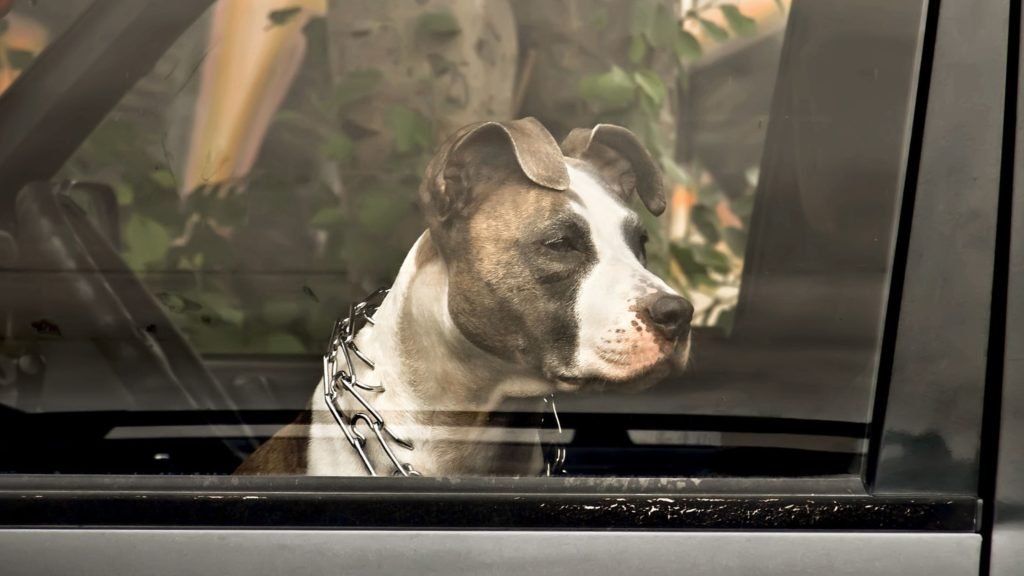This question has puzzled countless pet owners: why does my dog get aggressive in the car? If you’re in this predicament, know you’re not alone. In this comprehensive piece, we will unpack the reasons behind your dog’s car aggression and offer effective solutions to help them overcome it.
Understanding Dog Aggression in Cars
To find a solution to your dog’s aggressive behavior in the car, we must first understand the issue’s root. Dog aggression in cars is typically triggered by fear, stress, territorial behavior, or previous negative experiences associated with car rides.
- Fear and Anxiety: Car rides can be scary for dogs. The movement, noise, and confinement can be overwhelming, triggering fear and anxiety, which can result in aggression as a defense mechanism.
- Territorial Behavior: Some dogs consider the car an extension of their territory and may show aggression to protect it from perceived threats.
- Past Negative Experiences: If your dog has had traumatic experiences associated with car rides (like visits to the vet), it may exhibit aggression when they enter the car.
Identifying the root cause is a vital first step in managing aggressive dog behavior in cars.
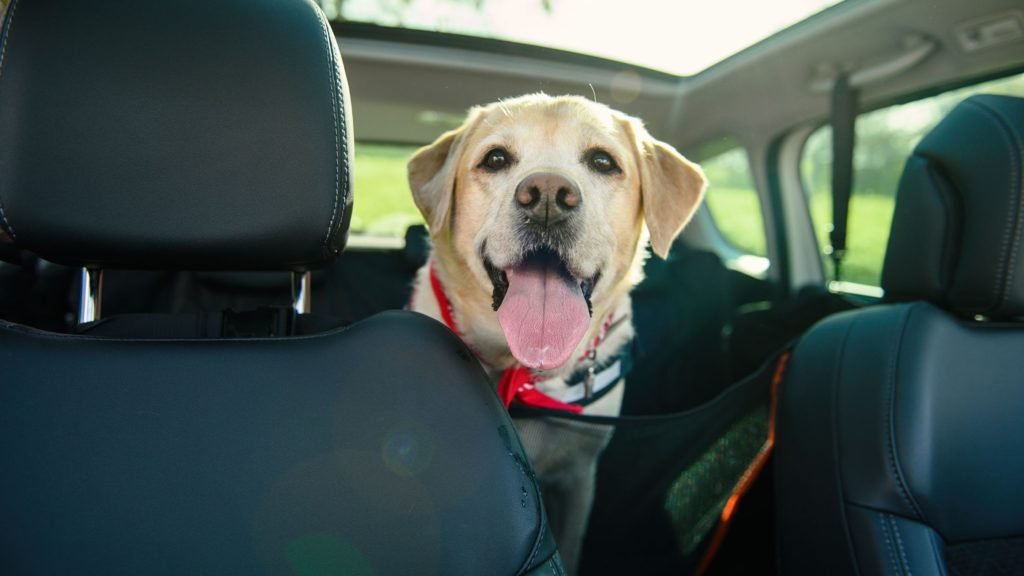
Car Anxiety and Dog Aggression
Understanding the link between car anxiety and dog aggression is crucial. When asking, “Why does my dog get aggressive in the car?” we must consider the possibility of concern playing a role. In dogs, anxiety can trigger a fight-or-flight response, resulting in aggressive behaviors like growling, barking, or biting.
Symptoms of Car Anxiety
- Shivering or trembling
- Excessive drooling or panting
- Pacing or restlessness
- Attempting to escape the car
- Aggressive behavior
If your dog exhibits any of these symptoms, they may be experiencing car anxiety, which could explain their aggression.
Why is My Dog Agitated in the Car?
Apart from anxiety and fear, agitation can also result from physical discomfort. Factors contributing to this discomfort can include:
- Temperature: Cars can get too hot or cold, causing your dog pain.
- Motion Sickness: Dogs can experience motion sickness like humans, making them feel unwell and agitated.
- Lack of Space: If your dog is large and the car is small, it may feel cramped and uncomfortable.
By identifying the source of your dog’s agitation, you can work towards creating a more comfortable environment for them during car rides.
Stay tuned for tips on calming an aggressive dog in the car and dealing with car aggression effectively.
How to Calm an Aggressive Dog in the Car
Now that we have understood the potential reasons for the question, “Why does my dog get aggressive in the car?” it’s time to address the issue and find out how to soothe our canine companions during car rides.
Familiarization
One of the best ways to ease your dog’s car aggression is through familiarization. Get your dog accustomed to the car in a non-threatening way. Begin with short, frequent car rides to places they enjoy, such as the park. Gradually increase the duration of the rides.
Positive Reinforcement
Use positive reinforcement techniques to associate car rides with pleasant experiences. You can reward your dog with treats, praise, or their favorite toy when they behave calmly in the car. This strategy can help them understand that good behavior in the car leads to rewards.
Create a Comfortable Environment
As we discussed, physical discomfort can contribute to your dog’s car aggression. Ensuring your dog is comfortable can be crucial in managing its aggressive behavior. Use a well-ventilated dog crate or seat belt for safety and comfort. Also, remember to keep the temperature inside the car comfortable and provide enough space for your pet.
Professional Help
If your dog’s aggression in the car continues despite your best efforts, it may be time to seek professional help. A professional dog behaviorist or a vet can provide expert advice and help address the underlying issues causing your dog’s car aggression.
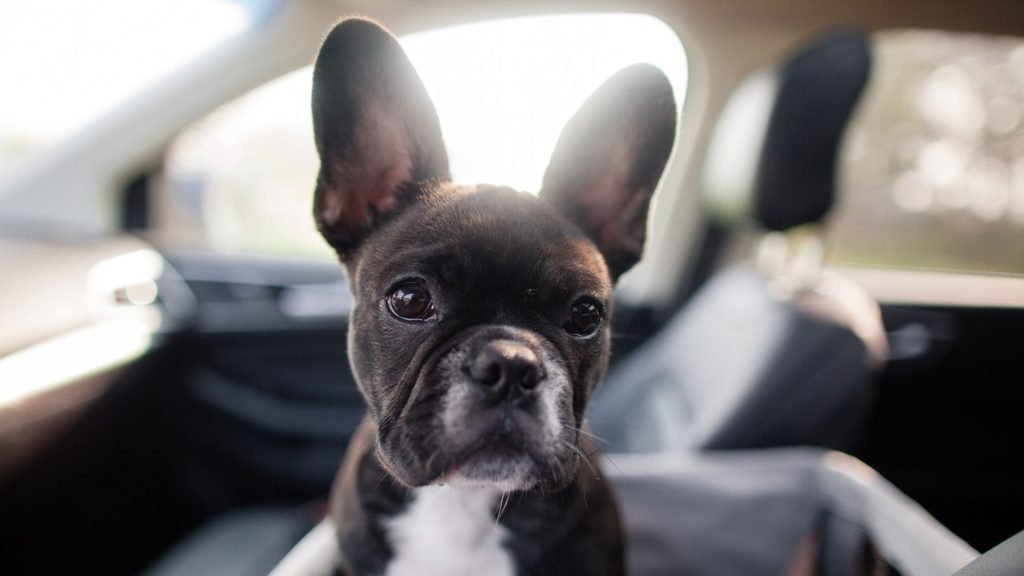
Dealing with Dog Aggression During Travel
Traveling with an aggressive dog can be a stressful experience for both you and your pet. However, it can be a different way. Here are some tips to help you manage your dog’s aggression during travel:
- Plan: Ensure you’ve packed all the necessities for your dog, including their favorite toys, treats, and any medication if required.
- Regular Breaks: Stop frequently for bathroom breaks and to let your dog stretch their legs.
- Keep Calm: Your dog can sense your stress, making them more anxious. Try to stay calm and composed during the trip.
Tackling the question, “Why does my dog get aggressive in the car?” can be a challenge, but with patience, consistency, and professional advice, you can help your dog become more comfortable with car rides. Keep reading for preventive measures and a helpful FAQ section on dog car aggression.
Preventing Aggression in Dogs During Car Rides
Prevention is always better than cure, especially when dealing with “Why does my dog get aggressive in the car.” Here are some proactive steps you can take to prevent such aggressive behavior during car rides:
Start Young
Get your dog used to car rides from an early age. This exposure can help make car trips a normal part of their life, reducing the chance of developing car aggression later.
Regular Rides
Make car rides a regular part of your dog’s routine. Irregular or infrequent rides can make your dog anxious, leading to aggressive behavior. Regular short rides can help your dog get used to the car environment.
Stay Calm
Dogs can sense their owner’s emotions. If you’re anxious or nervous, your dog can pick up on that, causing them to feel the same way. Stay calm and relaxed during car rides to help your dog feel safe and secure.
Desensitization and Counterconditioning
This more formal approach involves gradually getting your dog used to the car while associating the experience with something pleasant. This could include feeding your dog in the car or giving them treats while in the car, gradually increasing the time spent there.
Prevention strategies take time to show results. It’s important to be patient and consistent with your dog. Let’s summarize things with a quick recap and some commonly asked questions.
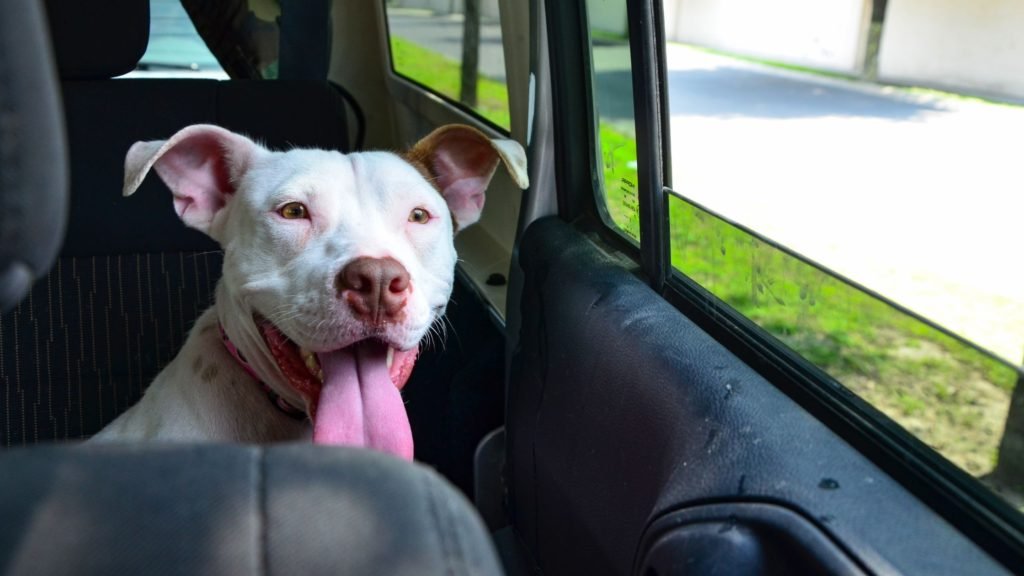
Conclusion
While it can be quite concerning when your dog displays aggressive behavior in the car, it’s crucial to remember that you are not alone. Many dog owners have faced similar situations. But understanding “Why does my dog get aggressive in the car” and adopting proper management strategies can greatly help alleviate the problem. Most importantly, patience, consistency, and love will ensure your dog feels safe and comfortable in the car.
FAQ
Why does my dog get aggressive in the car?
Dogs can become aggressive in the car for a variety of reasons. It can be due to fear, territorial behavior, motion sickness, or simply the stress of being in a confined, moving space. It’s important to identify the cause to address the issue effectively.
How can I calm my dog in the car?
Methods to calm your dog in the car can range from providing them with familiar toys or blankets, using calming sprays, or slowly acclimatizing them to car rides through positive reinforcement and gradual exposure.
Should I punish my dog for being aggressive in the car?
Punishing your dog for being aggressive in the car can often exacerbate the problem. Instead, focus on understanding the root cause and using positive reinforcement to encourage better behavior.
Can a professional help with my dog’s car aggression?
Absolutely! If your dog’s car aggression is severe, or if your efforts to calm your dog aren’t working, you should seek help from a professional dog trainer or a behaviorist. They can provide personalized guidance based on your dog’s behavior and needs.
Ultimately, remember that every dog is different, and what works for one might not work for another. It’s crucial to observe your dog closely, understand its behavior, and create a safe and comfortable environment. Resolving your dog’s car aggression might take time and patience, but the results will be worth it. Safe travels with your furry friend!
Related Articles

How to Make Dogs Nails Less Sharp: A Comprehensive Guide
As a dog owner, it’s normal to

Can a Groomer Sue You if Your Dog Bites Them?
Can a Groomer Sue You if Your
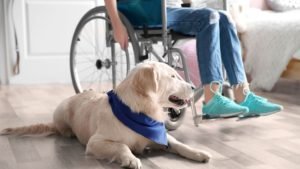
Does Insurance Cover Service Dogs? Facts You Need to Know
As you prepare to welcome a service

Do Dogs Heal Faster Than Humans? The Surprise Facts Revealed
Regarding the question, “Do dogs heal faster

Embracing the Power and Grace of A Boerboel Dog
Peek into the world of a Boerboel

Indigestion in Dogs: Is your dog’s stomach making them miserable?
Indigestion in dogs, often known as gastrointestinal

